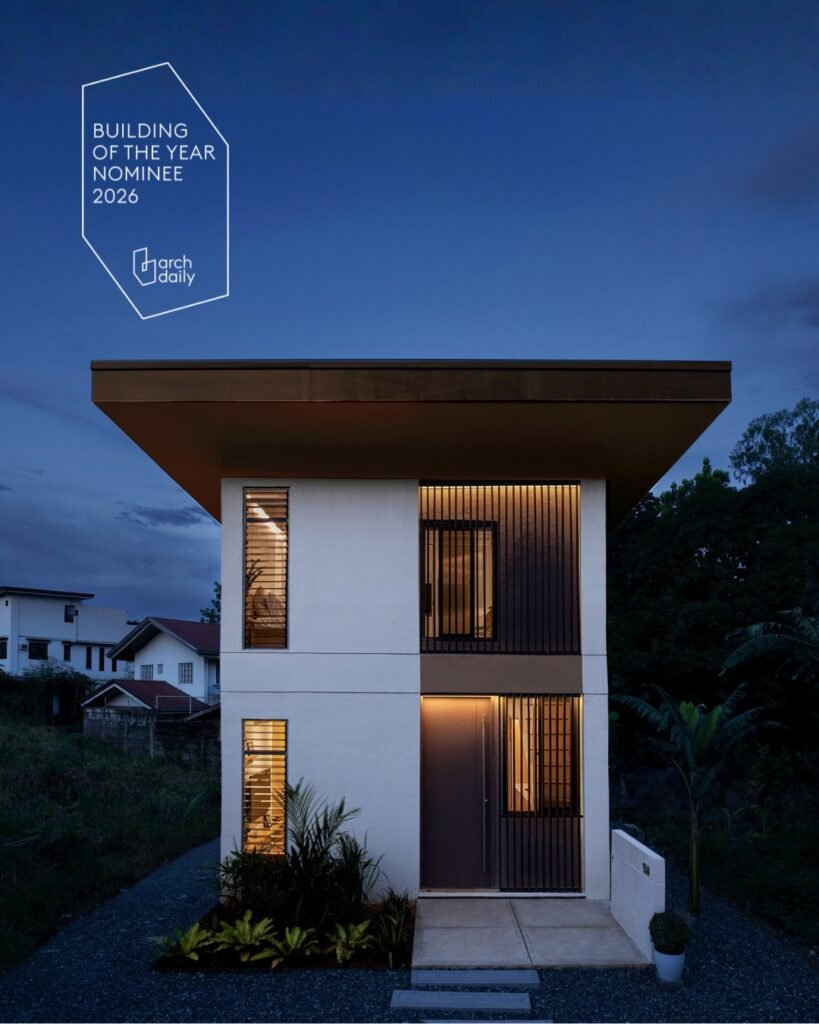As a CEO of an impact-driven startup with an unconventional business model, I’ve witnessed the complex financial realities of pursuing meaningful work. My realizations push me to explore today’s concepts of contentment, measures of success, and the compensation gap in a capitalist-driven society.
During one of our site inspections, ensuring that the materials used in our net-zero homes were safe and high-quality.
When people see me, a social-impact startup CEO who left his corporate job years ago, living and sending my two kids to school in such an expensive city as Singapore, they often jump to conclusions about my financial status.
Some presume that I have princely roots in India and I could do anything without worrying about money.
Others imagine me to be a prodigy, able to make millions and earn financial freedom during my 20s.
Sorry to burst your bubble, but I’m neither.
Now, the question on everyone’s mind: How do I do it? Is it really possible to live a good life while working for a company driven by social impact rather than profit?
I found myself asking the same question years ago. I knew I wanted to do impactful work without being handcuffed to a corporate job, but doing so would also mean letting go of a lucrative source of income.
When I looked around at social-impact companies and non-profits, I saw people who seemed to have a good balance. They were focused on value-driven work while doing well financially, albeit not indulging in lavish lifestyles. I told myself if they could do it, I could also figure it out.
So, despite the risk and uncertainty at that time, I followed my heart and decided to truly commit to my passion. I took a leap of faith and built BillionBricks. Since the day I left corporate, I never looked back.
Harsh Financial Realizations
In the corporate world, people constantly compute how much they are worth. For instance, when they get interviewed for a new role, they ask themselves: based on my skills, experience, and achievements, what salary rate do I deserve at this point of my career? What is the going market rate for this role? How much do my contemporaries charge for this amount of work?
In my world as an impact-driven startup founder, things could not be more different. Over the years of building BillionBricks, my focus has been razor-sharp on our vision, mission, and purpose, generating direct and visible impact. Money-wise, I’ve always been satisfied as long as I could pay the rent, send my kids to school, and have savings in the bank.
Finances didn’t bother me… not until two recent incidents shook me out of my comfortable bubble.
A few days ago, I was driving around with my friend, who happened to be a renowned designer. Our conversation delved into the growing demand for designers, especially as new companies seek to set their brands apart through exceptional design. This surge in demand seemed to have jacked up designers’ salary range, particularly within the realm of startups.
As we exchanged insights on prevailing market rates for designer salaries and what BillionBricks could afford to pay its top designers, a startling revelation unfolded.
It turned out that our startup’s budget could only accommodate approximately 35% of the prevailing market rate. That means the opportunity cost – or the forgone potential benefit – of pursuing impactful endeavors was not a mere 5% or even 25%, but rather a staggering 65%.
This realization highlighted the immense challenge we faced in competing for talent. After all, it’s almost impossible to expect individuals to make such significant financial sacrifices. Moreover, this sacrifice was not a one-time occurrence but an ongoing commitment year after year.
Our conversation shed light on one of the underlying reasons why top designers often find themselves working on incremental changes to existing experiences and brand-building rather than coming up with new innovations.
Consider, for instance, how creatives get big bucks to design new shoes for Nike or how Dyson can experiment with peculiar products such as headphones integrated with masks. While the impact of these endeavors may be minimal or even non-existent, the financial compensation is significantly higher.
Why work for an impactful company when taking up a job for businesses in disguise of problem-solving can make you three times more money?
Not long after that encounter came the second incident.
I exchanged emails with an old colleague based in Europe to offer him a designer job at BillionBricks. He’s one of the best in his profession, so I offered him a rate equal to what I’m currently paying myself as CEO. I thought it was a substantial offer, but he politely declined.
“I got home maintenance work done recently, and my plumber billed me the exact same rate,” he told me. He wasn’t being sarcastic or mean; he was passing on a fact in an amicable way.
These two instances, just a few hours apart, struck me like a bolt of lightning. The zest of following my passion blinded me to the harsh realities of the financial world.
While I take pride in the work that I do at BillionBricks, it dawned on me that its worth was comparable to that of a plumber’s labor. Let it be clear; I hold no disrespect for the significance of a plumber’s work. Rather, my realization lies in the capitalist assumption that people get paid for the amount of value they create and what the market can support.
Reviewing my life using that lens, did my years of hard work create such little value?
Addressing Market Demands vs. Tackling Core Problems
With capitalism being the present dominant economic force of development, it’s difficult to be compensated for positive impact the same way we get compensated for activities focused on generating profit – even if these activities yield negative impact or no impact at all.
To make an environmental or social impact, businesses must invest time and resources. But to be honest, the return on investment comes in paper and not in cash.
I know many would beg to differ, but the precious years I spent in this space taught me this: the idea of making huge profits in the impact startup space is more a myth than a reality.
For one, an unconventional business model limits the company’s financial ability to compensate its employees. Is it possible for impact-focused enterprises to come closer to the salary rates of commercial businesses? This debate is undoubtedly worth exploring.
But the fact remains: industries closely aligned with market demands have a higher likelihood of achieving commercial success, thus enabling them to provide higher salaries for their employees. On the contrary, if the product doesn’t precisely match market demands, even if it addresses a core problem like what BillionBricks does, it might not receive the same financial rewards.
As a result, the pay gap between these two types of industries is wide, currently standing at 65% based on my personal dealings and knowledge. It may be a Herculean endeavor, but my goal is to work towards bridging this gap as much as possible.
Besides the effect of market alignment on salaries, another crucial aspect to explore is delving into our own values, needs, and desires.
Do we need to constantly strive to make more in order to consume more? Or can we find contentment by embracing “enough” and promoting a fairer distribution of wealth?
When we get a promotion or make more money, why do we always feel a need to upgrade – be it a shiny new car, a larger house, or the latest designer bag? Why can’t our possessions stay within the bounds of what we need rather than what we desire or can afford?
This is an equally tough issue that needs to be addressed. With social media hailing wealth as a measure of success, many people now seek external validation rather than looking inward to find true contentment.
Until we solve the fundamental issues of capitalistic rewards and revisit our own values of pursuing superficial validation, people like me who work in BillionBricks and similar organizations will have to be thankful that we have a ‘plumber’ paycheck every month. We can feel proud of the work that we do, even though nurturing and sustaining that sense of pride is no simple task.
Source:
Economist Intelligence Unit (2022). New York and Singapore rank as the world’s most expensive cities





